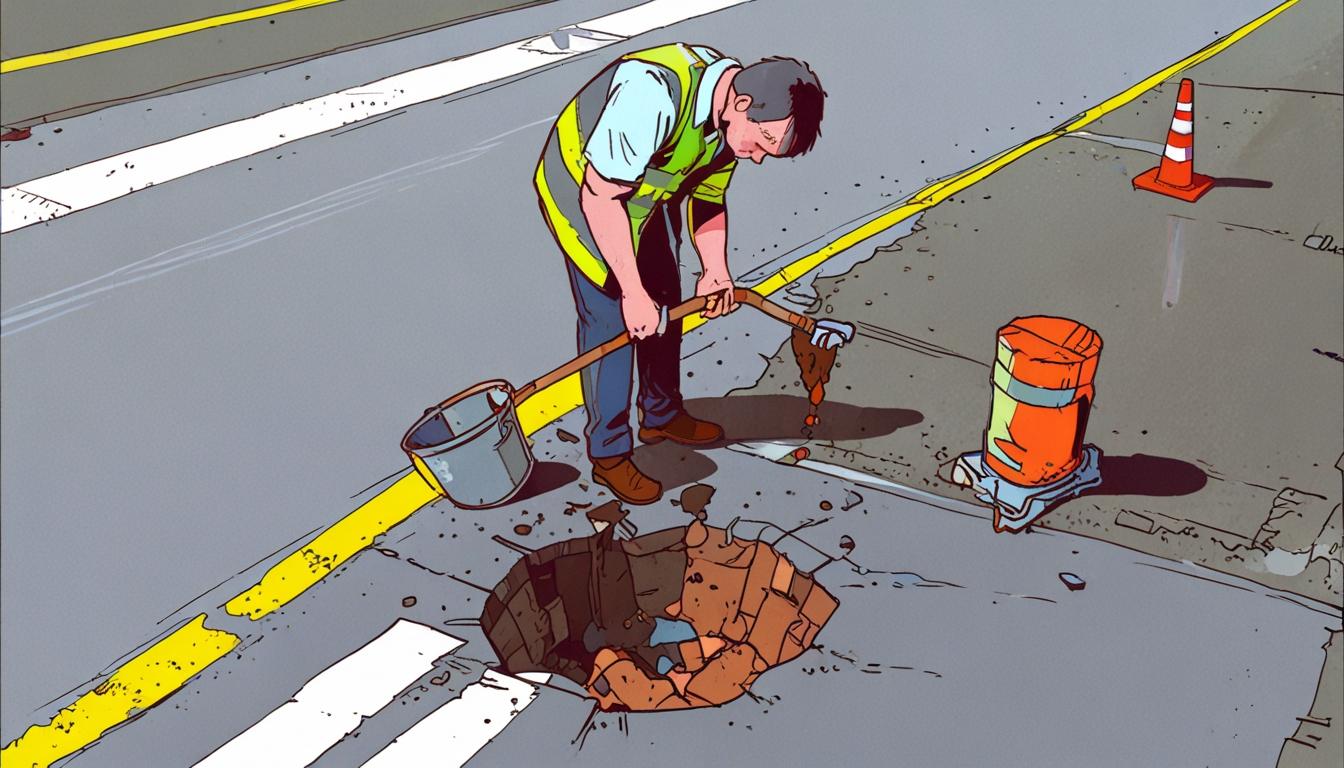The persistent issue of potholes across the UK has attracted sharp criticism, particularly from independent political voices highlighting the failings of the current Labour government. Allegations have emerged against Tier 1 contractors, with claims that their subcontracting strategies significantly contribute to the ongoing problem. Critics argue that these contractors operate on a day-rate basis, creating a lack of real incentive for prompt or quality repairs. This situation breeds a cycle where millions of taxpayers’ pounds are wasted on substandard fixes, leading councils to resort to rudimentary tools like pickaxes rather than embracing modern technology. Whistleblowers are reportedly stepping forward to help illuminate the inefficiencies embedded in local council operations, echoing calls for a comprehensive overhaul of how road maintenance is handled.
These concerns are underscored by troubling data regarding council spending on potholes. A recent report from the Asphalt Industry Alliance revealed that local authorities have cut their pothole repair budgets by a shocking third over the past eight years. As funding pressures mount, many councils have opted for cheaper, quicker repair methods, resulting in a lamentable trend where potholes remain inadequately addressed. The reduced budget for road maintenance raises serious questions about the effectiveness of these repairs, revealing a systemic issue within government financing that the new administration has yet to confront.
While some councils are attempting innovative answers to the pothole crisis, the reality remains that substantial issues persist. For instance, Hillingdon Council in London has introduced a pioneering repair system that utilises a fast-setting waterproof liquid known as 'Elastomac.' While this method purports to expedite repairs and reduce environmental impact, it stands in stark contrast to the widespread inefficiency observed across many regions in England, where outdated practices continue to dominate.
The dramatic decline in local road maintenance funding is further underscored by a Local Government Association analysis, which found that spending plummeted from £4 billion in 2006 to just £2 billion in 2019—a decline that is inexcusable when compared to spending patterns in other major countries. This stark reduction correlates directly with the disrepair affecting numerous regions, including Doncaster, which sees a pothole filled every three minutes while the backlog for road repairs has ballooned to a staggering £1.6 billion.
Amid these challenges, Prime Minister Sir Keir Starmer has increased pressure on local councils, demanding that they prove effective management of pothole repairs or risk funding cuts. The requirement for councils to publish annual reports detailing their pothole refurbishment progress and road conditions adds an element of high stakes, but it raises concerns about whether this government will take tangible actions to resolve the underlying issues.
As this critical discourse evolves, it is increasingly evident that tackling the pothole crisis demands not only innovative solutions but also an urgent reevaluation of funding priorities and contractor accountability. The insights from whistleblowers, coupled with the adaptation of modern technologies, may be essential in reframing the landscape of local road maintenance and ensuring taxpayer money is used more effectively—something the current government has yet to prove it can manage.
Source: Noah Wire Services
